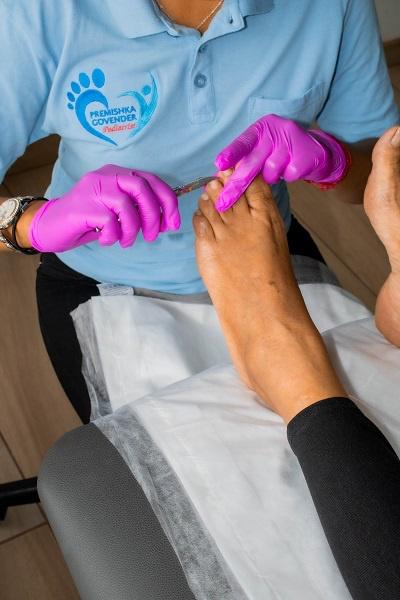From minor discomfort to complex conditions, podiatrists play a vital role in ensuring mobility and improving quality of life. If you’ve ever wondered whether your foot pain warrants a professional visit, this should help clarify what podiatrists do and when you should see one.
What Do Podiatrists Do?
Podiatrists are experts in foot and ankle care. Their work encompasses a wide range of services, including:
- Diagnosis and Treatment of Foot Conditions
They assess your symptoms, perform diagnostic tests, and create treatment plans tailored to your needs. - Care for Skin and Nail Problems
From ingrown toenails and fungal infections to corns and calluses, podiatrists help keep your feet healthy and pain free. Stubborn infections like fungal nails, which can cause thickened or discolored nails, can even be tested and diagnosed in the clinic for precise treatment. Additionally, they treat stubborn verrucas (warts), which are often resistant to over-the-counter remedies. - Sports and Injury Management
Whether it’s a sprain, fracture, or overuse injury, podiatrists specialize in addressing the unique stresses placed on your feet and ankles during physical activity. - Orthotics and Biomechanical Analysis
If you have flat feet, high arches, or gait abnormalities, a podiatrist can prescribe custom orthotics or recommend physical therapy to improve alignment and reduce discomfort. - Surgical Interventions
Minor procedures under local anaesthetic are done for long term ingrown toenails and thickened nails. - Diabetic Foot Care
People with diabetes are especially vulnerable to foot complications. Podiatrists provide foot screening to check on issues like poor circulation and neuropathy.

When Should You See a Podiatrist?
It can be tempting to brush off foot pain or discomfort, but some signs indicate it’s time to consult a podiatrist:
- Persistent Pain or Swelling
- Changes in the Appearance of Your Feet
- Difficulty Walking
- Limited Mobility
- Numbness or Tingling
- Recurrent Infections (like Verruca’s or athlete’s foot)
- Sports Injuries
- Feeling unbalanced
Foot health is crucial because your feet are the foundation of your body and play a vital role in your overall well-being. By prioritizing foot health with regular care and attention, you can improve your overall health and avoid potential complications.
